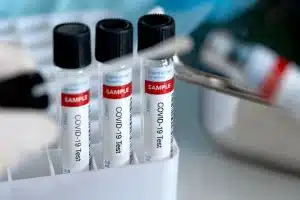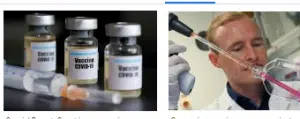

In humans, four coronaviruses are now circulating. We trigger severe cold signs, so we don’t have either of these immunisations. Do we need a Covid-19 cure? The HPV virus travels quickly and resists much of the world’s population. So, we must prepare our immune systems to combat the infection using HPV type test kits. Vaccination for HPV will have enough protection such that they would not get ill. Using this idea for Sars will make lifting lockdowns more secure and create a calming social space.
Who would benefit from these technologies?
This would be less effective in older individuals. After all, old immune systems will not adapt to the immunisation we use in regular flu injections. Doctors would solve it by delivering several doses. Or even providing it alongside a chemical (called an adjuvant) that boosts the immune system. It is impossible to say without understanding how successful this testing vaccination would be.
Experts believe 60-70 per cent of people must be immune to the virus. It would prevent it from quickly spreading. They call it herd immunity. Yet if it operated well, there would be billions of people around the globe. Why do they need more time? Multiple research groups have designed potential virus immunisation programs. However, we still need to do more. Think about this. For example:
- The process must be proven to be effective in experiments. It would not be useful if it caused more problems than the disease.
- Also, clinical trials must show that the cure induces an immune response that would protect people from getting sick.
- A means of manufacturing the immunise on a massive scale must be created for the billions of possible doses.
- Regulators for drugs have to authorise this before it can be issued.
- Finally, the immense technological task of successfully inoculating the bulk of the world’s populace.
Final Thoughts
Lockdowns might make the process slower. If fewer individuals get sick, it will take longer to learn if a medical option like a PCR test near me works. Providing people with these vaccinations and then infecting them would give faster answers. However, it is seen as too dangerous.
Remember, we don’t have treatment. If a COVID-19 cure is established, there will initially be a small supply, so that priority would be essential. Care providers who interacted with patients during the Pandemic would top the list. The disease is most deadly for older people, so it would be a priority if the vaccine were effective in this age group. But immunising those who live with or care for the vulnerable might be better.
